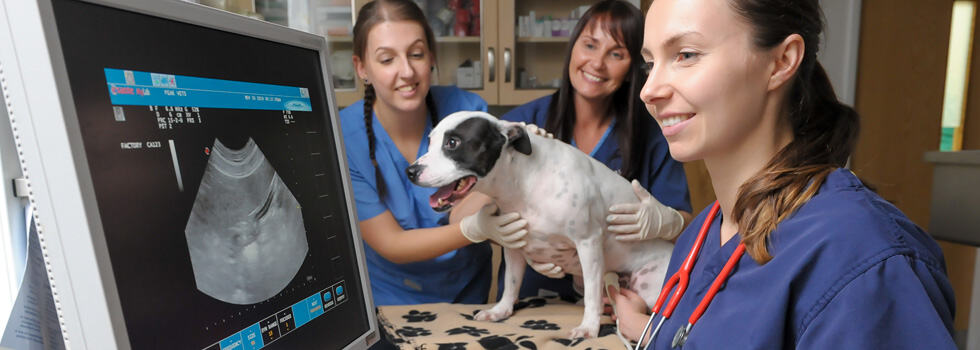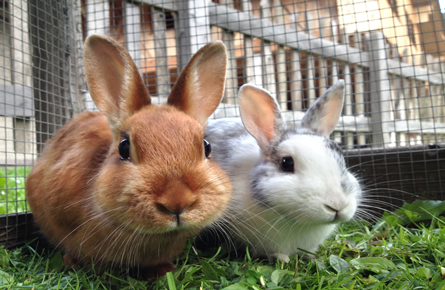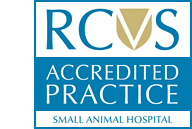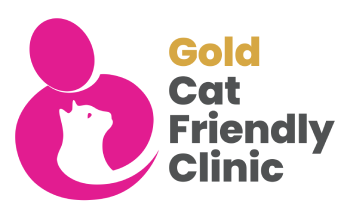Whether your dog requires preventative care or treatment for an existing flea problem, we offer the best flea treatments for dogs in Sheffield to ensure their comfort and wellbeing.
Give your dog the care they deserve. Ignoring fleas can lead to unnecessary discomfort and potential health issues. Taking proactive measures is key to giving your dog a life free from fleas.
We value every moment of your dog’s life, which is why we are dedicated to helping them enjoy happiness, vitality, and freedom from fleas, every step of the way.
All year-round, tick, worming & flea treatment is just one of the many benefits of joining our Pet Health for Life Plan.
Begin Flea Treatment for dogs Sheffield
For your dog to be healthy, a solid foundation is necessary. At Peak Vets, we emphasise the need of flea prevention because of this. It is far better to prevent fleas and deal with the problems and discomfort they might bring to your dog.
Why Prevention Matters
Fleas may quickly cause problems for dog owners and their pets. These little rodents can cause itching, allergic responses, and skin irritation. Furthermore, fleas are a serious health risk to your dog since they may spread parasites and diseases.
Our flea control methods are intended to keep your dog comfortable and secure. We give a variety of nutritious and safe solutions for your pet. Together, you and our experts will choose which preventative measure best suits the unique needs of your dog.
Avoid waiting for fleas to become an issue. You may proactively protect your dog's comfort and well-being by utilising dog flea treatments Sheffield.
Book a flea and worm treatment appointment
What are the symptoms of fleas for dogs in Sheffield?
Fleas are small, agile insects that can dwell in your dog's fur and create a number of discomforts. Dogs can get fleas from a number of places, such as through contact with people, animals, or contaminated environments.
Fleas spread fast, so it's critical to identify and treat them as soon as possible. Here are a few signs to watch out for:
Excessive Biting or Scratching: Pay close attention to your dog's actions. Frequent self-biting or scratching, especially around the neck, ears, or base of the tail, may indicate flea infestation.
Tiny Dark Specks on Skin or Bedding: Flea dirt, often seen as tiny dark specks, may appear on your dog’s skin or in their bedding. These specks are flea droppings and a clear indication of an infestation.
Redness, Irritation, or Rashes: Flea bites can cause redness and irritation, and in some cases, even rashes on your dog’s skin.
Hot Spots and Hair Loss: Fleas can lead to hot spots—painful, inflamed areas on the skin—and may result in hair loss in affected spots.
Restlessness or Signs of Discomfort: If your dog appears unusually restless, uncomfortable, or is having difficulty settling down, flea irritation could be the cause.
If you suspect your dog has fleas, it’s important to act promptly. At Peak Vets in Sheffield, our team offers thorough examinations and tailored flea treatment options to ensure your dog’s comfort and wellbeing.
Our Services for Flea Treatment for dogs Sheffield
Peak Vets provides comprehensive flea treatments for dogs in Sheffield, ensuring your pet’s health and comfort. Here are some of the services we offer:
Topical Flea Preventatives: These treatments are applied directly to your dog’s skin, offering ongoing protection against fleas. Based on your dog’s size, age, and lifestyle, we’ll recommend the most suitable product.
Oral Flea Preventatives: For some dogs, oral treatments may be a more convenient and effective option. Our vets will guide you in choosing the best solution for your dog’s needs.
Environmental Control: We’ll provide advice on keeping your dog’s environment free of fleas. Regular vacuuming and cleaning of your home are key steps in preventing flea infestations.
By offering these tailored services, we aim to give you the tools and knowledge needed to protect your dog from flea-related discomfort and health risks.
Book a flea and worm treatment appointment
Choose Peak Vets for Flea Treatment for dogs Sheffield
Choose the expertise and care that Peak Vets offers for your dog’s flea treatment. Here’s what sets us apart:
- Veterinary Excellence: Our skilled team of veterinarians specialises in both flea treatment and overall dog care. With extensive knowledge and experience, we are dedicated to achieving the best possible outcome for your dog.
- Tailored Solutions: Every dog is unique, and we recognise the importance of personalised care. That’s why we create customised flea treatment plans designed to meet your dog’s specific needs, always prioritising their welfare.
- Safe and Effective Treatment: Using the latest advancements in flea treatment, we ensure your dog’s comfort and safety. Our treatments are not only highly effective but also gentle on your pet.
- Loving Care: At Peak Vets, your dog is treated like family. Their health, comfort, and happiness are our top priorities. We work closely with you to ensure your dog receives the finest care possible.
Book an Appointment for Flea Treatment for dogs Sheffield
For your dog's long-term health and enjoyment, flea protection is crucial. Modern equipment and a staff of committed experts that actually care about your dog's well are combined at our Sheffield facility.
Make an appointment right now with Peak Vets! Our staff is here to provide your dog the best flea treatments in Sheffield as well as practical preventative measures.
Don't hesitate; provide your dog with the attention and comfort they need. With Peak Vets, begin their path to a life free of fleas right now.
Spread the Cost of Flee Treatment for Dogs Sheffield With Pet Health for Life

One excellent method to split the expense of your pet's regular medical treatment is with our Pet Health for Life Plan. Along with routine checkups that maintain your dog's health and make their life happier, you will receive all the necessary treatments to keep your dog free of ticks, fleas, and worms.
Lungworm FAQs
What are the signs of lungworm in dogs?
Lungworm in dogs is a parasitic infection that can cause a range of symptoms. The signs of lungworm can vary depending on the severity of the infection, the age and health of the dog, and other factors. Here are some of the common signs of lungworm in dogs:
- Coughing - this is one of the most common signs of lungworm infection in dogs. The cough may be persistent and can sometimes be accompanied by phlegm or blood.
- Breathing difficulties - lungworm can cause breathing difficulties, including shortness of breath and wheezing.
- Decreased appetite - dogs with lungworm may show a decreased appetite and a general lack of interest in food.
- Weight loss - if the lungworm infection is severe, the dog may begin to lose weight rapidly.
- Lethargy - dogs with lungworm may show a lack of energy and interest in exercise or play.
- Vomiting - in some cases, lungworm infection can cause dogs to vomit.
- Changes in behaviour - dogs with lungworm may exhibit changes in behaviour, such as restlessness, agitation, or depression.
If you suspect that your dog may have lungworm, it is important to take them to see your vet as soon as possible. Lungworm can be a serious and potentially life-threatening condition, but it can be successfully treated if caught early.
How do dogs get lungworm?
Dogs can get lungworm by ingesting snails, slugs or frogs infected with lungworm larvae. This can happen when dogs accidentally eat these creatures, drink contaminated water or eat grass that has come into contact with infected snails or slugs. Lungworm infection is more common in dogs that spend a lot of time outdoors. Preventive measures include avoiding contact with snails and slugs, providing clean drinking water and regular deworming.
Can a dog recover from lungworm?
Yes, with appropriate treatment, dogs can recover from lungworm. Treatment usually involves medication to kill the worms and supportive care. Early diagnosis and treatment are crucial for a successful recovery. Preventative measures, such as regular deworming and minimising exposure to snails and slugs, can also help to reduce the risk of lungworm infection.
What are the first signs of lungworm in dogs?
The first signs of lungworm in dogs can include coughing, difficulty breathing, reduced appetite, weight loss and lethargy. If you notice any of these symptoms or suspect a lungworm infection, it is important to seek veterinary advice immediately for prompt diagnosis and treatment.
How quickly does lungworm take to develop?
The time it takes for lungworm to develop in a dog can vary depending on several factors, including the dog's age, immune system and the severity of the infection. In general, it can take anywhere from a few weeks to several months for a dog to develop symptoms of lungworm after being infected with the parasite. However, some dogs may not show any symptoms at all, making it difficult to know if they have been infected. If you suspect that your dog may have been exposed to lungworm, it is important to speak to your vet and have your dog tested for the parasite to ensure prompt diagnosis and treatment if necessary.
Dog Flea & Worm FAQs
What is the best worming treatment for dogs?
There are many products available alongside new products emerging each year. We are here to help with selecting the best-suited protection for you and your dog. We have the most up-to-date advice and treatments available. We dispense prescription-only parasite treatments which are more effective than over-the-counter treatments and are often combined to tackle other parasites in one medication.
Under UK law, only veterinary surgeons can prescribe prescription medications as they are required to health assess a dog before prescribing them. For flea and worm treatments, vets usually require a health check every 12 months, which can fall under your pet's annual booster health check.
Please note other classes of medications vary with the frequency of health checks required.
What do dogs do when they have worms?
Worms (excluding tapeworm) are rarely seen, so it is difficult to know if your dog does have worms. Therefore, prevention is much safer for your dog. Tapeworms can appear as rice-like grains around the anus or in faeces. It is essential that you give regular treatments, especially if you have children. Puppies are also at a higher risk of worms. Worms are zoonotic meaning they can pass from animals to people.
Symptoms usually occur in high levels of infestation – these symptoms include:
- diarrhoea
- vomiting
- swollen abdomen
- lethargy
- nutritional deficiencies
- dehydration
- cough (in roundworm and hookworm infections)
- pneumonia (in serious cases of roundworm).
If you would like to discuss a worming treatment plan with our vet, you can contact us, and we can provide the most up to date and evidence-based recommendations.
What do vets use to deworm dogs?
There are many ranges of worming treatments that we can prescribe, including tablets, liquids, granules and spot-ons. The products can vary with the latest recommendations, we would advise contacting us to discuss our various products so we can give you the most appropriate recommendation. Flea treatment and worming regimes are not a one size fits all, so it's best to speak to us.
*Source: My Pet and I, March 2023









